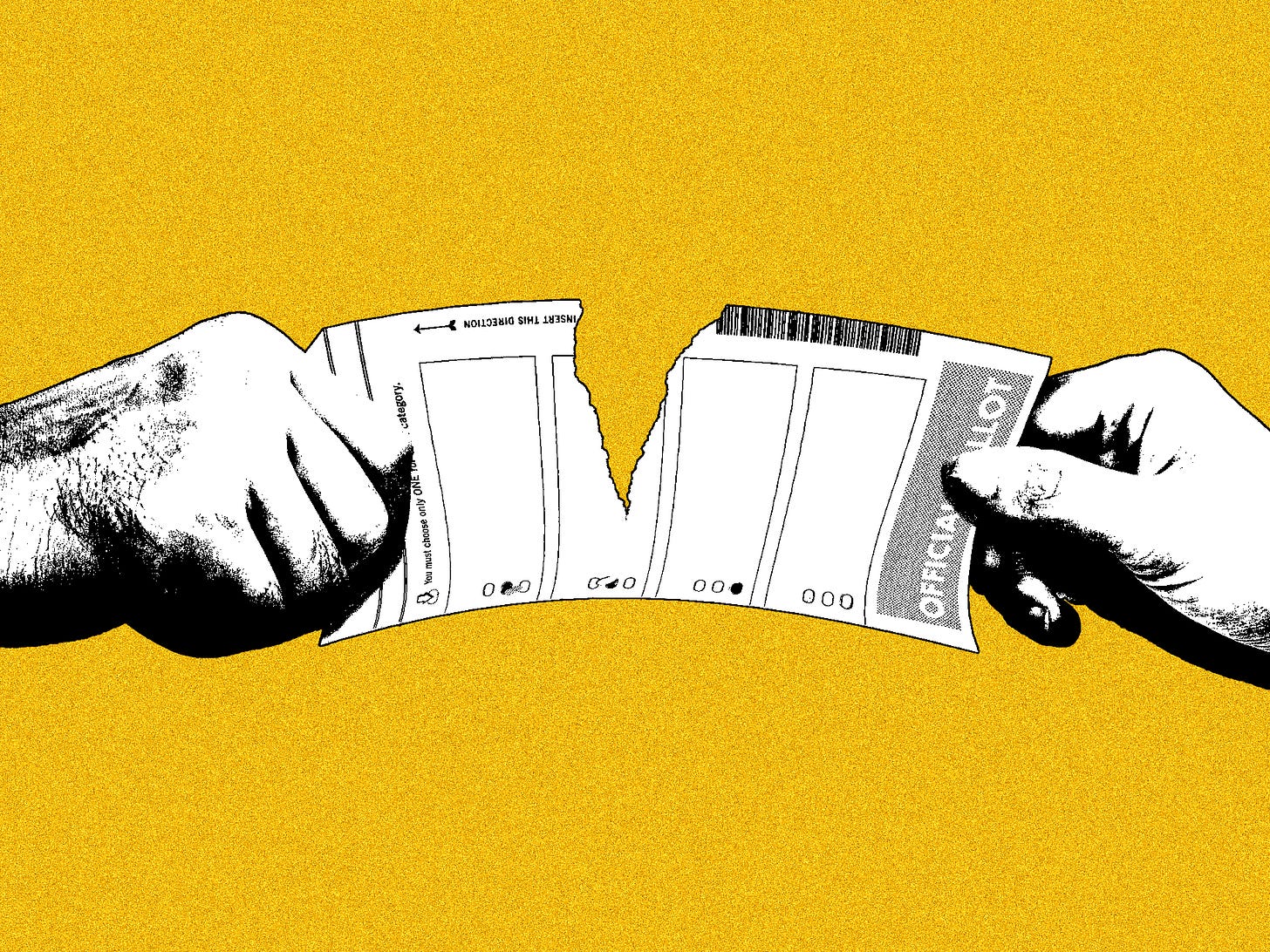I Might Not Vote
In our electoral system, there are few reasons that I should turn out to vote– and maybe you shouldn’t either.
For the next month, Americans will be bombarded with pleas from their politically engaged friends, family, and preferred media personalities to vote in next month’s election. Donald Trump and Kamala Harris have raised a combined 1.7 billion dollars for their campaigns, and much of this money is going towards convincing Americans to go to the polls.
However, these campaigns fundamentally don’t care about most Americans. The incentives in our political system exist such that certain votes count more than others. While hundreds of millions will cast ballots, only a sliver of these ballots will actually affect who goes to Washington. According to 538, the Presidential election has a nearly 85% chance of being decided in one of just seven states: Pennsylvania, North Carolina, Michigan, Georgia, Wisconsin, Florida, and Arizona.
Down ballot, the same trend holds. According to the Cook Political Report, only seven senate elections are competitive, and three of those are happening in states that already have competitive Presidential elections. Similarly, 538 also projects that 85% of Americans live in districts with entirely uncompetitive elections for their Representative. It’s hardly a surprise that American elections have a famously low turnout: oftentimes, there’s nothing worth voting for.
At this point, one’s decision on whether to vote or not might come down to local elections. By all means, one should vote in state and local elections and engage with the issues that matter to their communities. While it’s practically a cliché, state and city government officials have more influence over your life than the weirdos in Washington. Your city council, your state representative, and your state officials are more relevant to you, and you have more of a say over who they are. For my part, I have volunteered for elections in my hometown in the past, and, were I registered in Lawton, I would be voting.
But, since I wanted to vote in favor of marijuana legalization last year without requesting a mail-in ballot, I am registered in Norman, Oklahoma. This year in Oklahoma, forty-four state representatives won by default due to their lack of a challenger. My district in Norman has one such representative. While the Oklahoma’s far right is funding an effort to remove some of Oklahoma’s supreme court justices, this effort seems quixotic at best.1 Like many cities, Norman holds their local elections on random days in the middle of the year, meaning that their municipal elections already happened all the way back in February. All this means that, if I were to show up to vote next month, I would not be able to participate in any election where my vote has any likelihood of making a difference in the outcome.2
Oklahoma is one of nine states that does not permit write-in candidates, so I cannot protest my lack of meaningful options that way. Oklahoma also does not permit intentionally spoiling one’s ballot, so that more fun option is also out. The only reason for me to go out and vote would be to prove a point: that young people in Oklahoma turnout to vote, and accordingly, politicians should consider our interests. I don’t know. This argument is a little abstract, and I don’t find it entirely convincing. I could make an equally convincing argument that my not showing up to vote also proves a point: if you want my vote, you’re going to need to at least give me a chance to cast it in a way that counts.
I tell you what: if I get off class on the afternoon of November 5th and decide that I’m not sleep deprived enough to bother with a nap, then maybe, I’ll mosey over to the University Lutheran Church and cast a ballot, but I wouldn’t make any plans to see me there. In any case, I look forward to the day when the value of my vote is obvious.
If this effort grows any teeth in the next month, I would almost certainly vote. For now, it seems fringe.



This is how democracy dies. Millions of Americans have died for us to have the freedom to vote, and although it may not seem important now, things will never change from a lack of action.